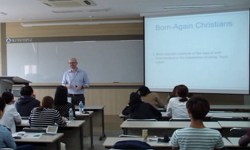Luxury hotel experience value perceptions are shaped by customers’ psychological reaction to a luxury hotel’s attributes. The attributes of luxury hotels are antecedents of experience values and their consequences in terms of satisfaction and loya...
http://chineseinput.net/에서 pinyin(병음)방식으로 중국어를 변환할 수 있습니다.
변환된 중국어를 복사하여 사용하시면 됩니다.
- 中文 을 입력하시려면 zhongwen을 입력하시고 space를누르시면됩니다.
- 北京 을 입력하시려면 beijing을 입력하시고 space를 누르시면 됩니다.

럭셔리 호텔 속성이 경험 가치, 만족도 및 향후 행동의도에 미치는 영향에 대한 물질주의, 환경 정체성, 개인주의-집단주의 성향, 아동기 사회경제적 지위의 조절효과 = Moderating Effects of Materialism, Environmental Identity, Individualism versus Collectivism, and Childhood Socioeconomic Status (CSS) on the Role of Luxury Hotel Attributes in Explaining Experience Values, Satisfaction, and Future Intention
한글로보기부가정보
다국어 초록 (Multilingual Abstract)
Luxury hotel experience value perceptions are shaped by customers’ psychological reaction to a luxury hotel’s attributes. The attributes of luxury hotels are antecedents of experience values and their consequences in terms of satisfaction and loyalty. By creating experience values, hotels can further their customers’ emotional attachment and improve their competitiveness. This study aimed to test the role of moderating factors in a model conceptualizing the consumption of luxury hotel experiences and post-consumption consequences. To achieve this objective, 389 questionnaires from customers who had stayed in luxury hotels within the previous three years were used for data analyses. Structural equation modeling and a series of multigroup analyses were carried out to estimate the effects of factors moderating the relationships among luxury hotel attributes, experience values, satisfaction, attitudinal loyalty, and revisit intentions. The results provided supporting evidence of the moderating effects of environmental identity, materialism, individualism versus collectivism, whereas the hypothesis on childhood socioeconomic status (CSS) was unsupported. The findings contribute to the luxury hospitality experience literature by providing insights into how the interplay between psychological and social factors moderate the interconnectedness of luxury hotel attributes and consumption values, and customers’ psychological reaction to their experience in luxury hotels. An implication of this study is that hotel managers should actively seek to optimize customers’ reaction to hotel attributes and their experience value perceptions, by designing attribute variants that cater to the various psychological traits of their customers.
동일학술지(권/호) 다른 논문
-
해양관광 연구 분석을 통한 현상, 이론 및 정책 정합성 탐색:학술지 키워드 메트릭스 분석을 중심으로
- 한국해양관광학회
- 진영재
- 2025
- KCI등재
-
어촌마을의 지역 먹거리 콘텐츠 개발방안: 해양축제, 어촌체험휴양마을, 국가중요어업유산을 중심으로
- 한국해양관광학회
- 김연수
- 2025
- KCI등재
-
해양레저관광진흥법 제정에 따른 과제 및 정책 추진방안 연구
- 한국해양관광학회
- 이웅규
- 2025
- KCI등재
-
호텔산업의 SNS 마케팅이 SNS 구전의도에 미치는 영향
- 한국해양관광학회
- 이정화
- 2025
- KCI등재




 KCI
KCI 스콜라
스콜라






